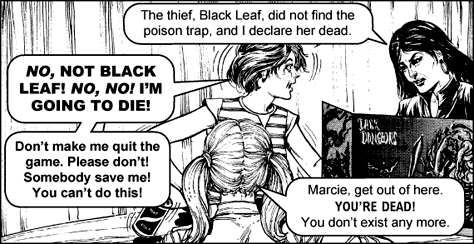I would say designing your game to remove or re-define those aspects is perfectly fine. When you start doing that to other people's games, however, you will get some pushback, if for no other reason than a lot of folks don't want to customize their game.
The use of "your" vs "other people's" games seems odd here. D&D is surely WotC's game, no, not your game? Or does this apply as soon as a licence is sold beyond the original designers, or the original designers cease being involved (which in D&D's case, would be in the 1980s)?
The underlying question here seems to be "Should a TT RPG make big changes as its potential audience changes, as its designers change, as design ideas change, or should attempt to maintain a specific form forever, regardless of the rest?". One might compare D&D and Call of Cthulhu. I would argue CoC has largely done the latter, and is relatively successful despite/because of that.
But there's a key difference between CoC and D&D. CoC had a very clear vision of what it wanted to emulate, and pushed hard towards that. Whether it has been entirely successful is debatable, but there was that clear and specific vision of emulating Cthulhu Mythos stuff in a TT RPG framework, right down to the protagonists often dying, fleeing, being driven insane, or a mixture of all three. As such it's only made relatively small iterative changes, because even the initial framework fit this pretty well.
D&D has never had the same clarity of vision. The closest it came to clarity of vision was the divisive 4E. D&D has always been vague, amorphous, always adding random new things which seemed cool or reflected pop culture at the time. Just look at 1E's Monk, for example. There's a tiny space of time and culture where that particular thing as a D&D class "made sense" (and indeed I've seen convincing evidence it's largely derived from a specific set of novels). But D&D blobbed it in, and whilst it was largely absent from 2E, it's been part of all other editions.
D&D also saw vast changes in gameplay focus in the 1980s, as people moved increasingly away from campaigns focused on dungeon crawling and sandboxes, towards for more adventure or scenario-focused play, and moved away from dodgy shady characters like Fafhrd and the Grey Mouser as their character role models, toward more straightforwardly heroic ones (as per Dragonlance etc.). Even now, the characters, whilst often cloaked in a layer of faux-ironic detachment, remain pretty reliably more heroic than early D&D seemed to be designed for.
I could go on. My point is though, D&D has never had a consistent vision, always been a game in flux. Expecting that to stop at some point doesn't really make sense. It's why D&D has been so successful - if D&D had frozen in, say, 1E form, and just slowly upgraded 1E, it'd have died in the 1990s, no question*, imho. So these sort of complaints would make sense if CoC suddenly abandoned its commitment to the Mythos and everyone dying horribly, but make little sense with D&D, which has always changed.
* = I think the brand would have been reborn sometime in the early '10s even if it did die in the 1990s, note, but what we got wouldn't have looked anything like any edition of D&D, rules-wise. Probably something more like FFG Star Wars but with D&D tropes or something - or just some then-popular RPG system reworked to support old D&D classes/tropes. EDIT - Also re: died, that's because of TSR's direction, note. If TSR had sold it to someone smaller, not someone ambitious like WotC, I think it's quite likely that for at few years or a decade or so at least, it would have got the "CoC" treatment you seem to want. I.e. it would have been locked into basically 1E/2E rules, with slight improvements/changes/revisions just to keep books selling. But they'd have had a small audience/market share, and D&D would likely have been seen as this "old people" game. What would have happened in the 2010s in that case is an interesting question - my suspicion is they'd have been bought by some other company, one uninterested in D&D's legacy or rules, only its IP.








